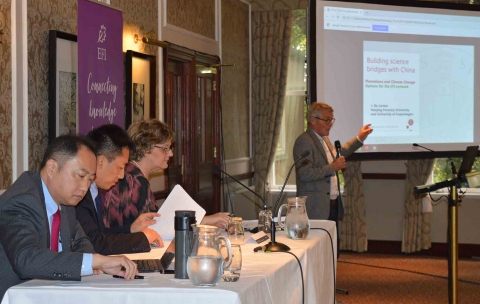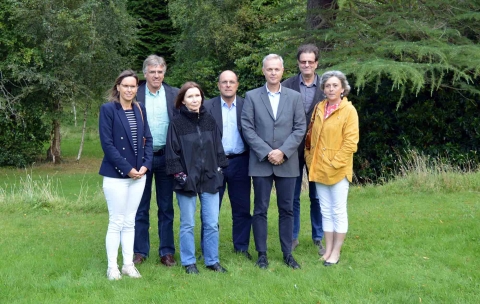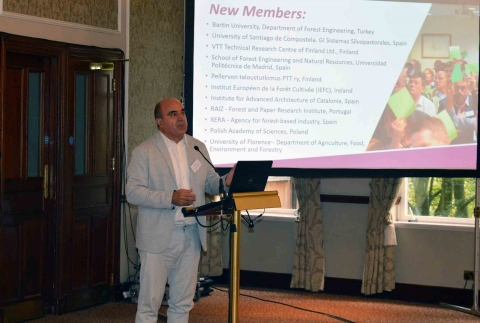Connecting, networking and decision-making
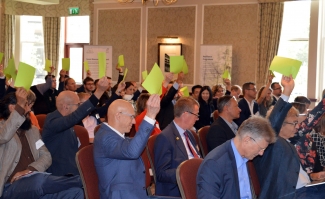
Discussions about EFI’s Governance Programme, the future European forest research area, including the importance of building cooperation with China were the focus of our Annual Conference, which brought together over 80 participants for discussing future plans, decision-making and networking. It was organised together with the James Hutton Institute, and took place in Aberdeen, UK from 18-20 September.
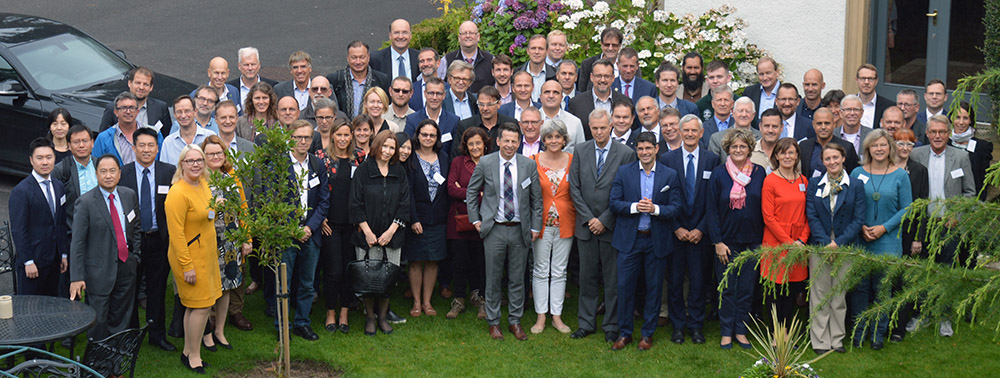
“EFI is a success story, based on you”, said Marc Palahí, EFI Director in his report to the Annual Conference. “We are a very dynamic forest research network. But this isn’t going to be enough in the future to address societal challenges. EFI needs to become a platform where forest science meets other disciplines, meets policy, media, business.”
Structuring European forest research
This was echoed in discussions which focused on how to structure European forest research, and the role which EFI plays. After hearing insights on the European Commission’s new Horizon Europe in 2021, and on the FTP Strategic Research Agenda, a panel tackled the question of what EFI can do to create a strong forest research area in Europe. Regional collaboration is needed, was one of the points, together with collaboration outside Europe on global issues like climate change.
There has been a shift from research to implementation and emphasis on the involvement of stakeholders – here EFI can play a large role, for example via its ThinkForest forum in bringing research to practice and policy. EFI can also be helpful in breaking the silos between disciplines, and helping to understand and overcome the research divide in Europe. For panellists it was important that EFI can provide members of its network with a joint voice, joint actions and joint impacts.
Future governance developments
Georg Winkel, Head of EFI’s Resilience Programme presented the current thinking and approach for the development of EFI’s Governance Programme. The ambition is to generate interdisciplinary and transdisciplinary science-based knowledge to promote an informed dialogue to support sustainable management of all types of forests, and halt deforestation. The programme will take a European relevance perspective, connecting to the global work and lessons learned from the EU FLEGT and REDD Facility, and also the work of EFI’s Forest Policy Research Network.
Building science bridges with China
EFI’s Strategy places special emphasis on building bridges to support science-based cooperation between Europe and major countries that play a key global role in terms of forestry and related questions. China is of high relevance as it has become the largest producer and exporter of forest products and the largest driver of demand for timber - we need to collaborate with China as global players to tackle global problems.
A survey of our member organisations showed that 62% of respondents already have cooperation with China, and discussions at our afternoon session explored with participants their interests in relevant topics, activities and mechanisms for cooperation with China in the context of EFI. There is potential for cooperation on plantations and afforestation issues (for example which species are used), climate change issues and forest food (eg mushrooms, ginko).
Open science and data
Our second parallel session focused on Open science, and the two main issues of open access to scientific publications and research data. EFI is developing a policy for open science, and plans to launch a survey with EFI member organizations on their experiences and institutional processes in relation to Open Science later in 2019.
Decision-making session in brief
Dr Natalia Lukina, Russian Federation, and an EFI Board member since 2016, was re-elected for a second term (2019-2022). Dr Lukina is from the Centre for Forest Ecology and Productivity of the Russian Academy of Sciences.
Former ThinkForest president Göran Persson was awarded an EFI Fellowship for his outstanding leadership of ThinkForest, and his contribution to EFI becoming recognised as a leading science-policy platform.
The 2020 Annual Conference will be held in Bonn, Germany. Early next year, there will be a call for hosts for the Annual Conference for 2022-24.
A warm welcome to our new members!
It was announced at the Annual Conference that the Board had approved the following memberships:
- Bartin University, Department of Forest Engineering, Turkey
- University of Santiago de Compostela, SI Sistemas Silvopastorales, Spain
- VTT Technical Research Centre of Finland Ltd, Finland
- School of Forest Engineering and Natural Resources, Universidad Politécnica de Madrid, Spain
- Pellervon taloustutkimus PTT ry, Finland
- Institut Européen de la Forêt Cultivée (IEFC), Ireland
- Institute for Advanced Architecture of Catalonia, Spain
- RAIZ – Forest and Paper Research Institute, Portugal
- XERA – Agency for forest-based industry, Spain
- Polish Academy of Sciences, Poland
- University of Florence, Department of Agriculture, Food, Environment and Forestry, Italy
Photos by Adam Walker, The James Hutton Institute.

